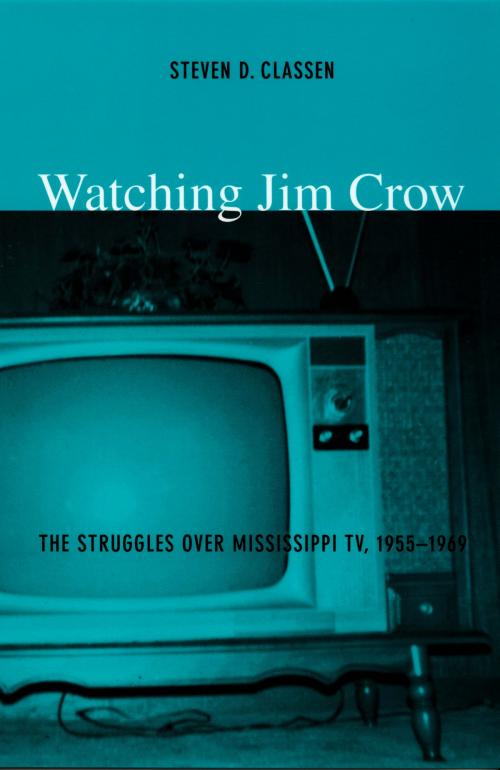Watching Jim Crow
The Struggles over Mississippi TV, 1955–1969
Nonfiction, Entertainment, Performing Arts, Television, Social & Cultural Studies, Political Science, Social Science| Author: | Steven D. Classen, Lynn Spigel | ISBN: | 9780822385424 |
| Publisher: | Duke University Press | Publication: | March 12, 2004 |
| Imprint: | Duke University Press Books | Language: | English |
| Author: | Steven D. Classen, Lynn Spigel |
| ISBN: | 9780822385424 |
| Publisher: | Duke University Press |
| Publication: | March 12, 2004 |
| Imprint: | Duke University Press Books |
| Language: | English |
In the early 1960s, whenever the Today Show discussed integration, wlbt-tv, the nbc affiliate in Jackson, Mississippi, cut away to local news after announcing that the Today Show content was “network news . . . represent[ing] the views of the northern press.” This was only one part of a larger effort by wlbt and other local stations to keep African Americans and integrationists off Jackson’s television screens. Watching Jim Crow presents the vivid story of the successful struggles of African Americans to achieve representation in the tv programming of Jackson, a city many considered one of the strongest bastions of Jim Crow segregation. Steven D. Classen provides a detailed social history of media activism and communications policy during the civil rights era. He focuses on the years between 1955—when Medgar Evers and the naacp began urging the two local stations, wlbt and wjtv, to stop censoring African Americans and discussions of integration—and 1969, when the U.S. Court of Appeals issued a landmark decision denying wlbt renewal of its operating license.
During the 1990s, Classen conducted extensive interviews with more than two dozen African Americans living in Jackson, several of whom, decades earlier, had fought to integrate television programming. He draws on these interviews not only to illuminate their perceptions—of the civil rights movement, what they accomplished, and the present as compared with the past—but also to reveal the inadequate representation of their viewpoints in the legal proceedings surrounding wlbt’s licensing. The story told in Watching Jim Crow has significant implications today, not least because the Telecommunications Act of 1996 effectively undid many of the hard-won reforms achieved by activists—including those whose stories Classen relates here.
In the early 1960s, whenever the Today Show discussed integration, wlbt-tv, the nbc affiliate in Jackson, Mississippi, cut away to local news after announcing that the Today Show content was “network news . . . represent[ing] the views of the northern press.” This was only one part of a larger effort by wlbt and other local stations to keep African Americans and integrationists off Jackson’s television screens. Watching Jim Crow presents the vivid story of the successful struggles of African Americans to achieve representation in the tv programming of Jackson, a city many considered one of the strongest bastions of Jim Crow segregation. Steven D. Classen provides a detailed social history of media activism and communications policy during the civil rights era. He focuses on the years between 1955—when Medgar Evers and the naacp began urging the two local stations, wlbt and wjtv, to stop censoring African Americans and discussions of integration—and 1969, when the U.S. Court of Appeals issued a landmark decision denying wlbt renewal of its operating license.
During the 1990s, Classen conducted extensive interviews with more than two dozen African Americans living in Jackson, several of whom, decades earlier, had fought to integrate television programming. He draws on these interviews not only to illuminate their perceptions—of the civil rights movement, what they accomplished, and the present as compared with the past—but also to reveal the inadequate representation of their viewpoints in the legal proceedings surrounding wlbt’s licensing. The story told in Watching Jim Crow has significant implications today, not least because the Telecommunications Act of 1996 effectively undid many of the hard-won reforms achieved by activists—including those whose stories Classen relates here.















